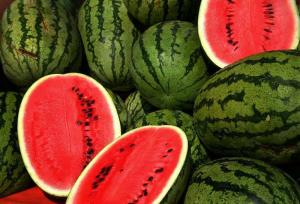- 1 read

New research suggests that watermelon may be a good additive for biofuel. Researchers are still waiting to compare the performance of the watermelon-blended biofuel to that of other feedstocks and gasoline to determine if this is a worthwhile endeavor.
The good news is that in order to produce this biofuel, there is no need to create additional watermelon patches. As it turns out, nearly 20 percent of the watermelon crops harvested each year is unused due to their appearance. Since misshapen and/or bruised fruit does not sell well, farmers take the loss and simply leave them in the field.
The discarded watermelons could be processed for their juice and then be made into biofuel. What makes watermelon biofuel-worthy? Watermelon juice contains 7-10 percent directly fermentable sugars or easy ethanol. While the watermelon juice would have to be almost triple concentrated to be the sole feedstock in a biofuel, it would make an excellent additive to other biofuel blends that need to be supplemented or diluted.
Farmers could process the watermelon juice on-site and use it as an alternative fuel or sell it to biofuel-makers and make revenue on what would usually be wasted fruit.

